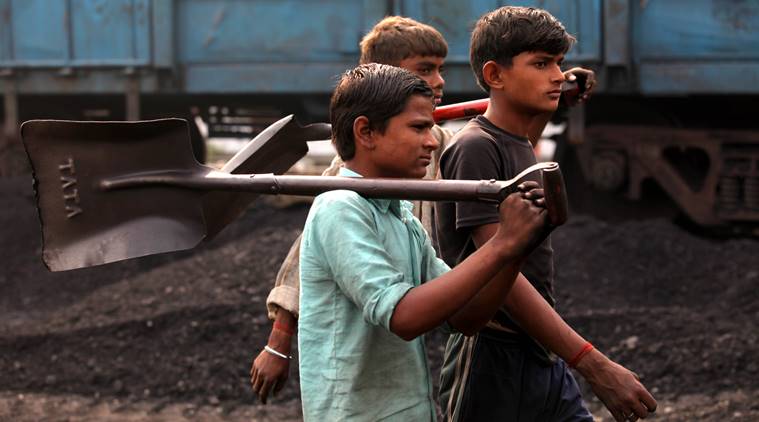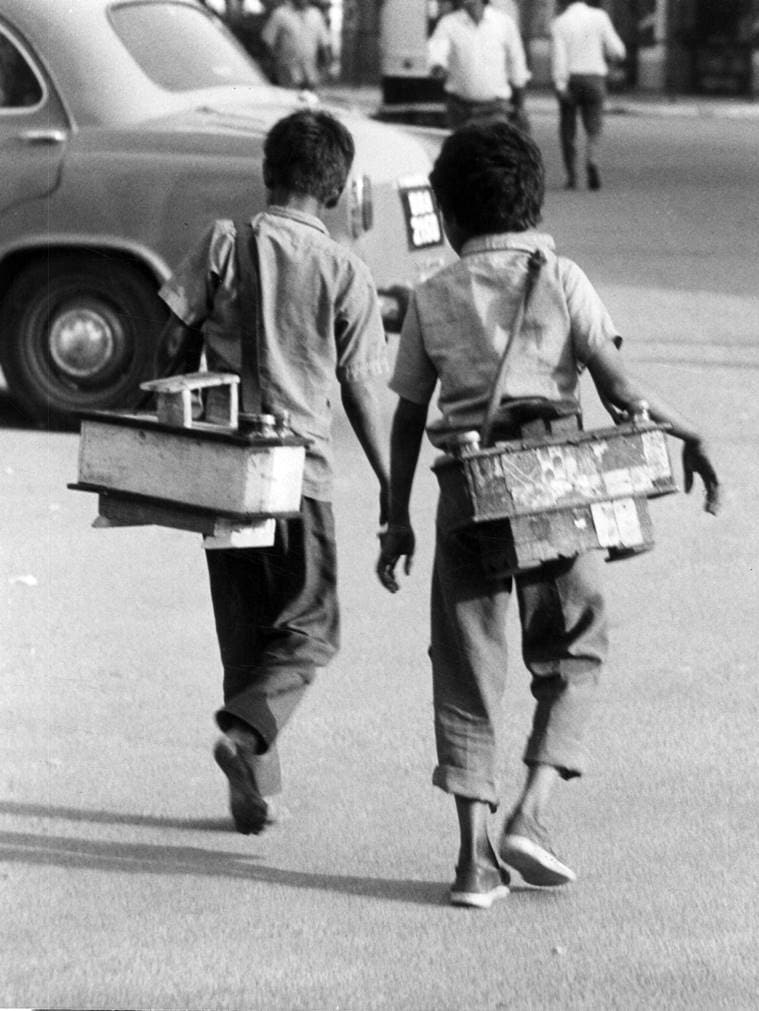 Menu
MenuThe Indian political class is not seized with the great questions of social justice such as alleviation of poverty, equality of genders, freedom from hunger, corruption, child labour and violence against women.
Written by Ujjal Dosanjh | Published:February 2, 2016 1:10 pm
 Child labourers return home after a day’s work at the Katra railway station, Gonda (UP). Express Photo/Ravi Kanojia
Child labourers return home after a day’s work at the Katra railway station, Gonda (UP). Express Photo/Ravi Kanojia
Slavery is legally banned. But millions of India’s children live and work in slave labour conditions — bonded labour, sex trafficking, child labour, domestic ‘help’ servitude and many other forms. According to the latest official public figures available there are at least 14 million children living under slavery. If one did a more honest counting and reporting, this number would surely jump to twice that – perhaps closer to 30 million.
The basic domestic laws outlawing children working in hazardous occupations and even as domestic help or in roadside establishments have been on the books for many years. But according to the International Labour Organisation (ILO) millions of children continue to be employed as domestic labour including over a hundred thousand of them in the national capital itself. Over 12 million children between the ages of five and 14 continue to work in dangerous occupations such as construction, manufacturing of beedis, bangles and fireworks. This is so, despite the ILO’s worst forms of child labour convention (No.182) banning exploitative forms of child labour including trafficking, slavery and hazardous employment.
In the context of ILO Convention No. 182, India tops the list when it comes to the number of children still living and working in bonded labour and slave conditions. China is a distant second with a much better record than India. China and all other countries – with the exception of six including India – have signed the convention. India, as one of the six non-signatories, is in the company of the following ‘world players’: Cook Islands, Eritrea, Marshall Islands, Palau,Tuvalu.
It is a matter national shame that India hasn’t been able to better deal with the scourge of not just child labour – which in itself is bad enough – but bonded/slave child labour. It hasn’t successfully stamped out trafficking of children for sex; abduction of children for trafficking for sex and slave child labour is not uncommon. In some cases grinding poverty forces parents and guardians to do the unthinkable – sell children into slavery.
 Why has India not yet signed the ILO convention no. 182? Express Photo/Virendra Singh/Archives
Why has India not yet signed the ILO convention no. 182? Express Photo/Virendra Singh/Archives
Many middle class as well as rich Indians utilise child labour when it is illegal, immoral and unconscionable. Don’t tell me they are doing a favour to the destitute who will starve without this slave labour. They must stop the inhuman, bonded and slave child labour and instead employ the parents and guardians of these helpless children, pay them decent wages for appropriate and regular working hours, overtime pay, statutory holidays and medical benefits. That will free the children to go to school and have decent lives.
The shameful statistics of bonded and enslaved children in hazardous or otherwise legally prohibited occupations betray the horrible legacy of the last 68 years of delinquent and corrupt politicians and other public servants most of whom have been breathlessly lining their own pockets while sermonising about ordinary Indians’ duties to the country. I wonder how any of them go to sleep at night knowing millions of Indian children – their children’s and grandchildren’s contemporaries – continue to be exploited and often sexually abused.
Why has India not yet signed the ILO convention no.182? Why has it squandered the almost seven decades of independence without tackling poverty, hunger and slave child labour? Why have Rajya Sabha and Lok Sabha been basically silent over child slavery, poverty and hunger in the country? Why the silence of the state legislatures over slave/bonded child labour, poverty and hunger?
The Indian political class is not seized with the great questions of social justice such as alleviation of poverty, equality of genders, freedom from hunger, corruption, child labour and violence against women. Unless some drastic changes take place the next seven decades may go as badly as the last seven for the ordinary Indians. History will record that many NGOs and Indians have worked tirelessly to tackle India’s great shame of bonded/slave and domestic child labour, hunger and poverty while the midget minds of the Indian political and ruling classes remain mired in their petty quarrels.
The bestowal of the Nobel for Peace on the much-deserving Kailash Satyarthi was the severest possible indictment of India on the world stage for the continuing child labour and slavery in the country. Even that stern international rebuke for the dereliction of their duty to the nation hasn’t awakened the slumbering souls of the political class numbed by power and corruption.